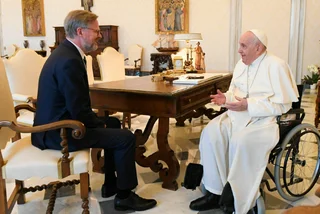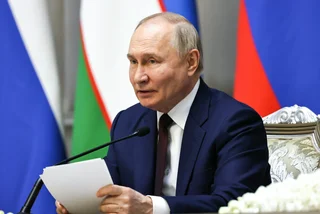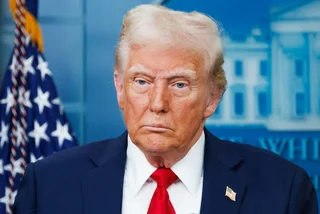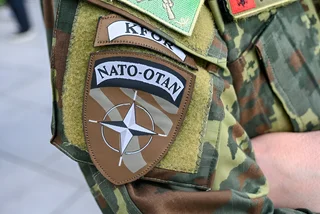The strained relations between Czechia and China became even tenser following Foreign Minister Jan Lipavský’s meeting with Tibetan representatives Wednesday.
An unauthorized meeting, according to China
The Chinese embassy in Prague sharply criticized Lipavský’s decision to speak with Tibetans who had been exiled from China. Tibet, which lies on the northern side of the Himalayas, is an autonomous region of China. Lipavský visited the region during a trip to India this week.
The Czech foreign minister commented that Beijing had been suppressing the local people, language, and culture of Tibet, and encouraged cooperation with Tibetans in containing China's threats.
He also criticized China’s human rights policy in the area, accusing the country of severe and unwarranted persecution.
"The Chinese side once again calls on the relevant Czech side to abide by the political commitment of one China, to stop using China-related issues for political manipulation and to avoid creating further disturbances and obstacles in the development of Sino-Czech relations," the embassy spokesperson wrote in a statement following the meeting.
During my visit to India, it was a pleasure to meet again the representatives of Tibetans in exile. The spirit of Václav Havel’s friendship with His Holiness Dalai Lama lives on. ðŸ‡¨ðŸ‡¿âœŒï¸ pic.twitter.com/tiq6EECOYl
— Jan Lipavský (@JanLipavsky) February 28, 2023
Czechia – officially – follows the “One China” policy, which acknowledges that there is only one Chinese government, which also rules over Taiwan and Tibet. China considers the Tibetan government-in-exile an illegal separatist group.
The Czech government has defended its actions. Lipavský responded to China’s criticism by saying that he had not violated any terms of Czech foreign policy and he did not do anything wrong.
One of many disputes
Such diplomatic tension is nothing new in Czech-Chinese relations. Shortly after President-elect Petr Pavel’s election victory in January, China responded angrily to Pavel’s phone call with his Taiwanese counterpart Tsai Ing-wen.
The arrival of senior Taiwanese politicians for a meeting in Prague in 2021 sparked outrage too, with China warning of “retaliation” over the visit.
Outgoing President Miloš Zeman has traditionally taken a sympathetic view of China and encouraged cooperation – something he often came under fire for – but Pavel’s presidency will likely see much cooler Czech-China relations.
Czechia is heavily dependent on China for trade – importing CZK 927 billion worth of goods in 2022 – and sourcing medicine. This latest spat, however, suggests that even strong trade links do not trump diplomatic debates between the two. Continued tension is likely as the year develops.













 Reading time: 2 minutes
Reading time: 2 minutes 





























